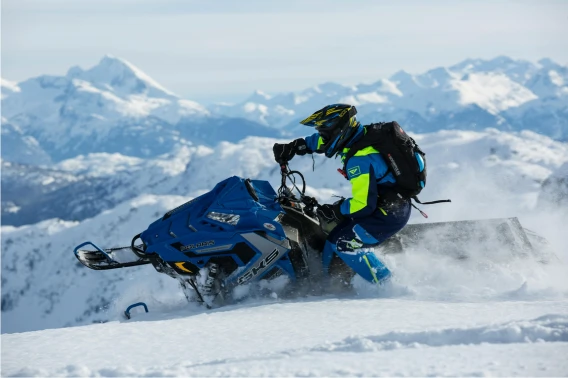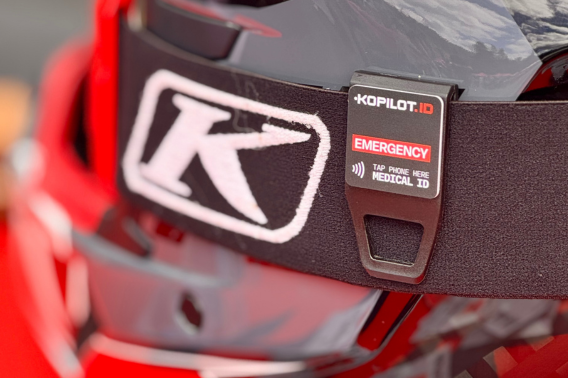Skiers, cyclists, climbers, and backpackers often carry satellite communication devices. But those useful emergency devices are still only one piece of the puzzle when it comes to staying safe in the backcountry. If you send out an SOS message and first responders reach you, they’ll need to know your medical history, allergies, and prescriptions.
That’s where the new KOPILOT.ID ($40) could come in handy. It’s a digital medical ID that stores all of your necessary personal medical info in a compact, secure, and battery-free package. There’s no subscription fee, and the mobile app you use to upload your info is free and secure.
All someone has to do in an emergency is tap a phone to your KOPILOT.ID and all of your relevant information will display.
KOPILOT.ID recently partnered with the Breck Epic mountain bike race as the event’s official safety sponsor. In 2026, every competitor will get one of these devices and will be required to wear it.
“When risk, unpredictability, and flow collide, seconds matter. KOPILOT.ID helps make sure the information that matters most is right there when you need it,” Mark Roebke, co-founder of KOPILOT.ID, said.
How the KOPILOT.ID Works
Setting up the device is simple. It pairs with the free KOPILOT.ID smartphone app. In the app, you’ll list all pertinent info, including emergency contacts, allergies, medical conditions and history, and medications.
The KOPILOT.ID is about the size of a thumbnail. It works through NFC, or near-field communication. Similar to the tap-to-pay function on credit cards, NFC exchanges information with a device using short-range wireless technology.
If the worst-case scenario occurs and you’re unresponsive in an emergency situation, first responders can tap any smartphone to the KIPILOT.ID and access all the necessary information to provide appropriate care. While you need the app to create your medical profile, people don’t need the app to access its info.
This technology is similar to smartphone emergency medical identification (SEMID) applications, like the iPhone’s Medical ID function. A study done by the University of Rochester on the usefulness of SEMID apps found that the information stored in them was useful and relevant to patient care in 75% of cases reviewed.
However, phones can die or get damaged — COPILOT.ID won’t. In certain circumstances, that could make the difference between life and death for outdoor athletes.
“We built KOPILOT.ID for people who love big days outside — and want the peace of mind that comes with being prepared,” Justin Bradshaw, co-founder of KOPILOT.ID, said in a press release.
KOPILOT.ID Features

The KOPILOT.ID does not require a subscription or batteries to work. It does not require a cell service connection, so it should always function, regardless of where you’re wearing it.
Users can attach it to helmets, packs, jackets, or goggles. Your purchase includes a goggle mount, zipper mount, and carbon helmet mount. The brand says it’s lightweight, waterproof, and durable. It can handle getting banged up in mud, dirt, or water, in both hot and cold conditions.
If you are in a foreign country, the device can even utilize AI to translate your information into 24 languages.
The Breck Epic is a 3-day mountain bike race held outside of Breckenridge, Colo. Competitors must complete six loops over the course of the race. Each loop is between 35 and 50 miles long, following the trail system that spiderwebs the mountains between Summit and Park Counties.
Annually, around 500 riders compete in the Breck Epic, and in 2026, every one of them will be wearing a KOPILOT.ID as an added layer of safety. It will be the first organized race to use the product, although it almost certainly won’t be the last.
“We build the Breck Epic around risk, reward, and camaraderie,” Mike McCormack, race director for the Breck Epic, said in a press release. “Adding KOPILOT.ID to our toolkit is an investment in protecting that spirit. When things go sideways, whether mechanical, medical, or otherwise, the last thing a racer should worry about is accessing help. This gives them one less thing to fear.”
Read the full article here





